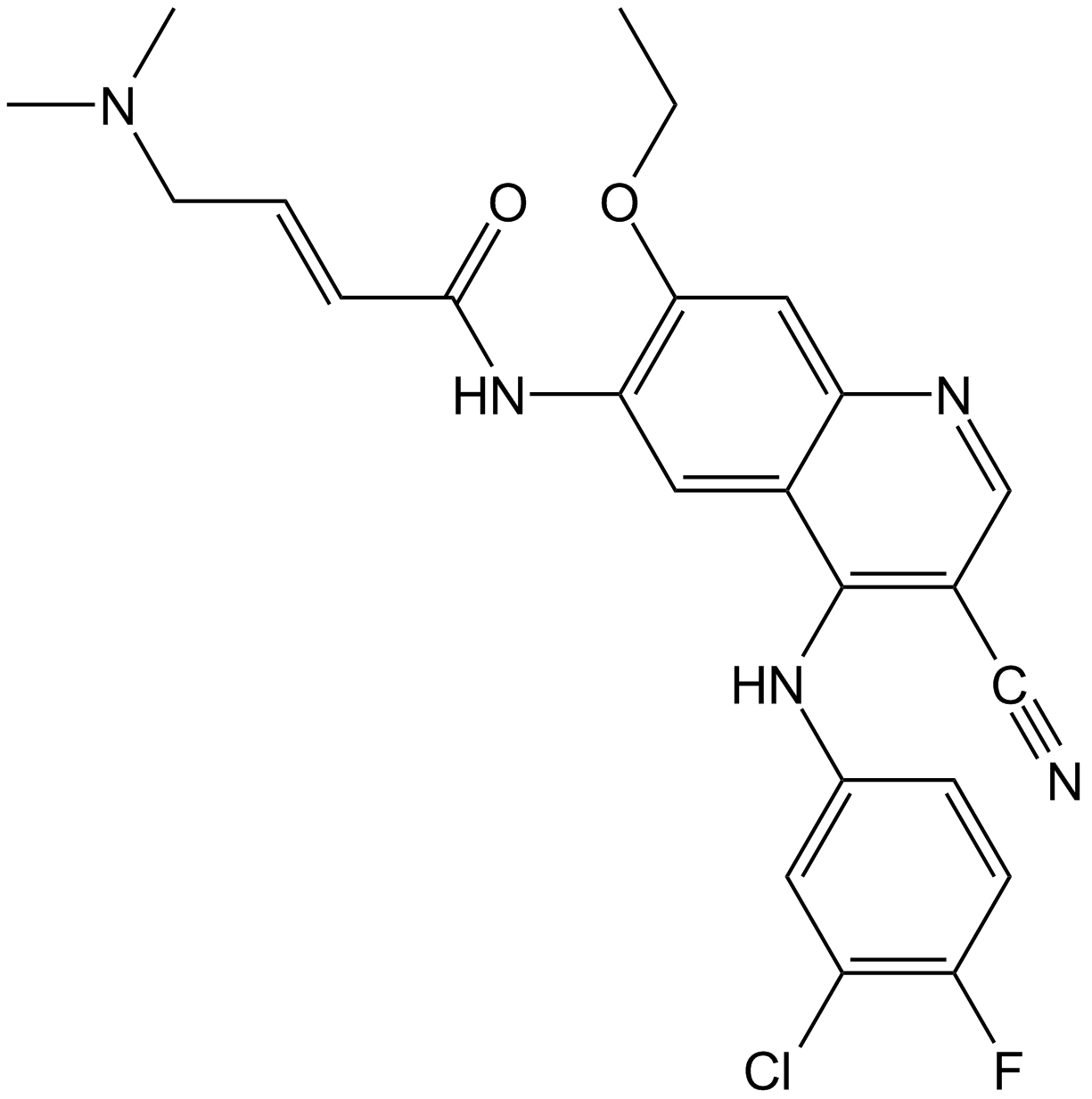Pelitinib (EKB-569) (Synonyms: EKB569) |
| Catalog No.GC17473 |
Pelitinib (EKB-569) (EKB-569;WAY-EKB 569) is an irreversible inhibitor of EGFR with an IC50 of 38.5 nM; also slightly inhibits Src, MEK/ERK and ErbB2 with IC50s of 282, 800, and 1255 nM, respectively.
Products are for research use only. Not for human use. We do not sell to patients.

Cas No.: 257933-82-7
Sample solution is provided at 25 µL, 10mM.
Pelitinib (also known as EKB-569), a 3-cyanoquinoline, is a potent, and irreversible inhibitor of epidermal growth factor receptor (EGF-R) tyrosine kinase that inhibits the activity of EGF-R with the half maximal inhibition concentration IC50 value of 38.5 nM in vitro [1].
Pelitinib has been found to exert a potent anti-proliferative activity against tumor cells overexpressing EGF-R, including NHEK, A431 and MDA-468 cells, with IC50 values of 61 nM, 125 nM and 260 nM respectively; while it has also been found to potently inhibit EGF-induced phosphorylated EGF-R (pEGF-R) in A431 and NHEK cells with IC50 values ranging from 20 nM to 80 nM [2].
References:
[1] Torrance CJ, Jackson PE, Montgomery E, Kinzler KW, Vogelstein B, Wissner A, Nunes M, Frost P, Discafani CM. Combinatorial chemoprevention of intestinal neoplasia. Nat Med. 2000 Sep;6(9):1024-8.
[2] Nunes M, Shi C, Greenberger LM. Phosphorylation of extracellular signal-regulated kinase 1 and 2, protein kinase B, and signal transducer and activator of transcription 3 are differently inhibited by an epidermal growth factor receptor inhibitor, EKB-569, in tumor cells and normal human keratinocytes. Mol Cancer Ther. 2004 Jan;3(1):21-7.
Average Rating: 5 (Based on Reviews and 21 reference(s) in Google Scholar.)
GLPBIO products are for RESEARCH USE ONLY. Please make sure your review or question is research based.
Required fields are marked with *




















